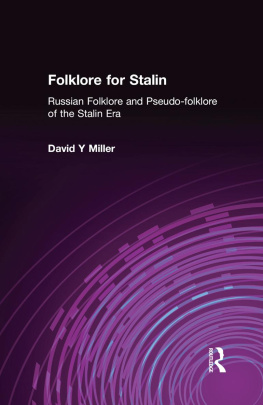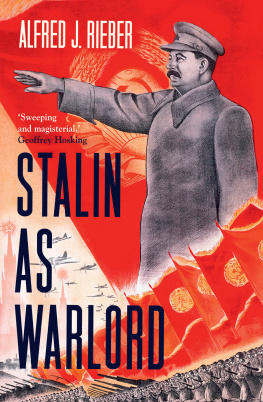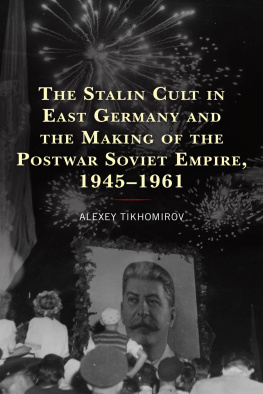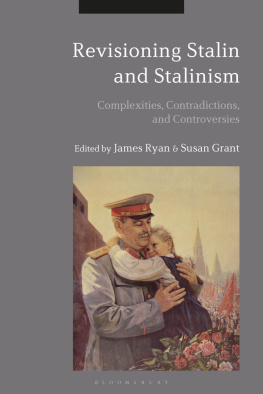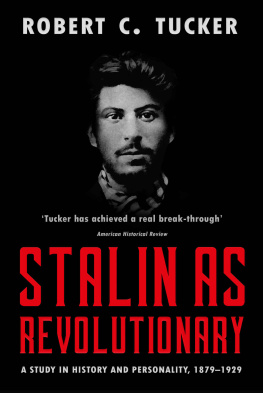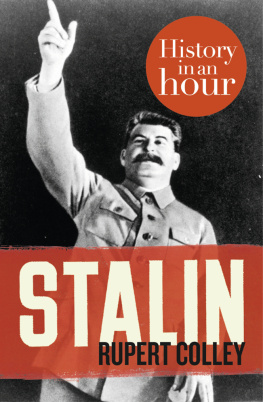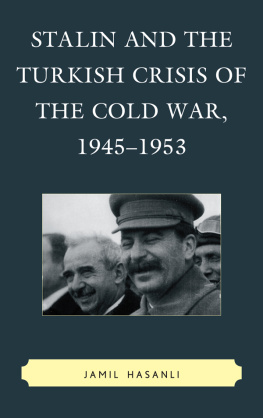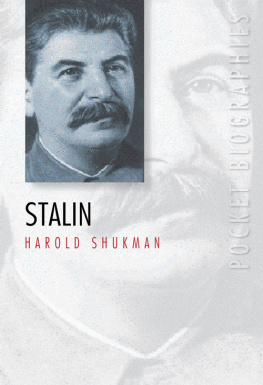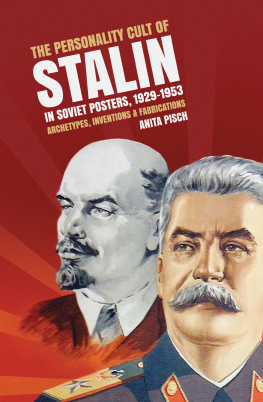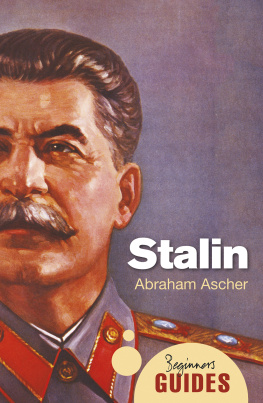Baberowski Jörg - Scorched Earth
Here you can read online Baberowski Jörg - Scorched Earth full text of the book (entire story) in english for free. Download pdf and epub, get meaning, cover and reviews about this ebook. City: Soviet Union, year: 2017;2016, publisher: Yale University Press, genre: Politics. Description of the work, (preface) as well as reviews are available. Best literature library LitArk.com created for fans of good reading and offers a wide selection of genres:
Romance novel
Science fiction
Adventure
Detective
Science
History
Home and family
Prose
Art
Politics
Computer
Non-fiction
Religion
Business
Children
Humor
Choose a favorite category and find really read worthwhile books. Enjoy immersion in the world of imagination, feel the emotions of the characters or learn something new for yourself, make an fascinating discovery.

- Book:Scorched Earth
- Author:
- Publisher:Yale University Press
- Genre:
- Year:2017;2016
- City:Soviet Union
- Rating:4 / 5
- Favourites:Add to favourites
- Your mark:
- 80
- 1
- 2
- 3
- 4
- 5
Scorched Earth: summary, description and annotation
We offer to read an annotation, description, summary or preface (depends on what the author of the book "Scorched Earth" wrote himself). If you haven't found the necessary information about the book — write in the comments, we will try to find it.
Scorched Earth — read online for free the complete book (whole text) full work
Below is the text of the book, divided by pages. System saving the place of the last page read, allows you to conveniently read the book "Scorched Earth" online for free, without having to search again every time where you left off. Put a bookmark, and you can go to the page where you finished reading at any time.
Font size:
Interval:
Bookmark:
THE YALE-HOOVER SERIES ON AUTHORITARIAN REGIMES
SCORCHED EARTH
STALINS REIGN OF TERROR
JRG BABEROWSKI
Translated by Steven Gilbert, Ivo Komljen, and Samantha Jeanne Taber
Hoover Institution
Stanford University
Stanford, California
Yale UNIVERSITY PRESS
New Haven and London
English translation copyright 2016 by Yale University and the Board of Trustees of the Leland Stanford Jr. University.
Originally published as Verbrannte Erde: Stalins Herrschaft der Gewalt, by Jrg Baberowski. 2012 by C. H. Beck Verlag, Munich, Germany.
All rights reserved.
This book may not be reproduced, in whole or in part, including illustrations, in any form (beyond that copying permitted by Sections 107 and 108 of the U.S. Copyright Law and except by reviewers for the public press), without written permission from the publishers.
Yale University Press books may be purchased in quantity for educational, business, or promotional use. For information, please e-mail (U.K. office).
Set in Sabon type by Newgen North America.
Printed in the United States of America.
Library of Congress Control Number: 2015959904
ISBN 978-0-300-13698-2 (cloth: alk. paper)
A catalogue record for this book is available from the British Library.
This paper meets the requirements of ANSI/NISO Z39.481992 (Permanence of Paper).
10 9 8 7 6 5 4 3 2 1
Contents
Preface
It should be customary, it should be called culture, observes the German writer Martin Walser, that someone who makes a claim also refutes what he claims. Novelists are freed from this constraint because they are allowed simply to write down whatever their freely chosen narrative perspective yields. Historians weighing in on an issue, however, must present something that is also recognizable as scholarship. At least this is what readers expect when they look for truths in history books that promise to answer unsolved questions. Historians know, when they resolve to write a book, that they will be identified as advocates of certain theses and opinions and will thus be required to repeat what is already known. Apparently, there are also certain historians who have the tendency to cling to opinions and elevate them to the rank of eternal truths, merely because they wrote them down at some point in time. Having to be right is tedious. Having to be always right with the same opinion is even more tedious. Thus, I was glad when I was unexpectedly given the opportunity to say something new and discard some of my old ideas.
Six years ago, when I was asked whether I could rework my 2003 book Der rote Terror (The Red Terror) for an English translation, I did not know what I would be getting myself into. In my mind it was all quite simple: I would read through the text and then add in anything noteworthy that had been discussed on the topic since 2003. But the more I read, the greater my disappointment. Reading my own book was agonizing. Its sentences, its turns of phrase no longer appealed to me, and I could not imagine that my readers thought otherwise. My own book no longer suited me. Everything I had read and said and written about Stalin and Stalinism since then stood in odd contrast to all the strong opinions that had given the book its structure. Although I was unwilling to dispense with an identifiable text, under no circumstances did I want to repeat what I had said in 2003. So much of what I had said (and what had seemed right seven years ago) now appeared to be complete nonsense. The new book needed to be clearer. It needed to be more elegant. And to this end I would have to refute what I had previously written. Within a matter of weeks I was no longer working on the old book but on a new one instead.
Since 2003 I have spent several years explaining to myself how it was possible for so many millions of people in the Soviet Union under Stalin to have been killed, displaced, imprisoned in camps, or allowed to starve to death. Back then, in 2003, I still believed that the theses of the sociologist Zygmunt Bauman could provide an answer. The pursuit of certainty, the overcoming of ambivalence, and the obsession with order in the modern gardening state, wrote Bauman, had led to the monstrous exterminatory excesses of the twentieth century. It was a nice idea for sure, but one that still remained an unverified claim.
The more I read about violence under Stalin, however, the clearer it became that my earlier interpretations of events needed to be revised. Stalin wasthe documents I have read since then leave no room for doubtthe author and director of the mass murder of millions. The communist experiment of the New Man gave Stalin and those in power the justification they needed to murder enemies and outcasts. It did not, however, prescribe mass murder. Stalin and his companions did not speak of the brave new world when they discussed what to do with the supposed enemies of this new order. They talked instead about techniques of violence. Only in a state of emergency did it become possible for a psychopath like Stalin to let his malevolence and criminal energy reign free. The dream of communist salvation was drowned in the blood of millions because the violence became detached from the original motives, and eventually was subject to the purposes of the dictator alone. In the end all that mattered was the recognition of total power, of Stalins total power, as master over life and death. Had it not been for the atmosphere of paranoia and mistrust, the despot would never have been able to force his will on others or make his world the one that everyone had to live in.
I tried to imagine what the world of Stalin and his companions consisted of, and the more I read, the clearer it became to me that ideas do not kill. Violence, on the other hand, is contagious, and for anyone who experiences it, it cannot be ignoredregardless of the motives with which a person enters a violent situation. Violence cannot be understood in terms of its origin, only in terms of its dynamic. Violence changes people. It turns the world on its head, and it destroys the trust that people need in order to be able to live together in a civil society. But it is also the lifeblood of the unscrupulous, those who feel authorized to do the things that others only dare imagine. If we try looking at the world through the eyes of Stalin, things that we would never have expected of ourselves become normality. This alone is what this book speaks of.
Why write a book at all? Are there not other ways to challenge life? Anyone who writes knows that ultimately only a few people will actually read what the author would have liked to impart anyway. People who write engage in a soliloquy, and as a writer one discovers more about oneself than about the subject matter being described. The violence came to haunt me in my sleep. It preyed on my mind so severely that there were days when I wished I was writing a different book. And yet, writing about life in the midst of violence also imbued me with a feeling of deep gratitude. There was no country in which class antagonisms could have been worse or the privileges of the ruling caste greater, no country in which people could have lived in greater fear than in Stalins Soviet Union. I on the other hand never had to experience the things that Stalins victims had to endure. The lesson taught by this type of experience, when put into words, wrote Arthur Koestler in his memoirs, always appears under the dowdy guise of perennial commonplaces: that man is a reality, mankind an abstraction; that men cannot be treated as units in operations of political arithmetic because they behave like the symbols for zero and the infinite, which dislocate all mathematical operations; that the end justifies the means only within very narrow limits; that ethics is not a function of social utility, and charity not a petty-bourgeois sentiment but the gravitational force which keeps civilization in its orbit.freedom of the other. Anyone who has lived in a society corroded by mistrust and violence, even for just a short time, understands immediately that this is a civilizational achievement that protects us from each other. We should be grateful for it, every day.
Next pageFont size:
Interval:
Bookmark:
Similar books «Scorched Earth»
Look at similar books to Scorched Earth. We have selected literature similar in name and meaning in the hope of providing readers with more options to find new, interesting, not yet read works.
Discussion, reviews of the book Scorched Earth and just readers' own opinions. Leave your comments, write what you think about the work, its meaning or the main characters. Specify what exactly you liked and what you didn't like, and why you think so.

